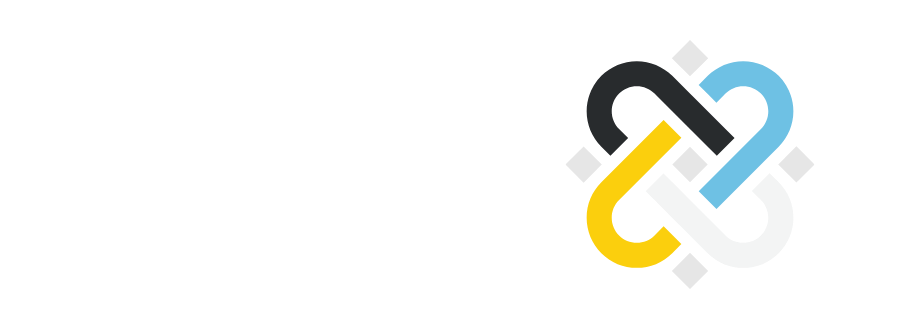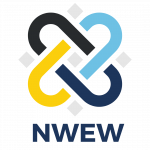Looking for the full Convening agenda? See the Agenda page.
Saturday Breakout Sessions
Navigate to:
Saturday Morning Sessions | 11:15am-12:45pm
You Don’t Have to Leave it at the Door: Welcoming Our Multidimensional Identities In and Beyond the Classroom
In this workshop, we will center the ways we approach wellness in our educational spaces as educators of color. We offer, that for educational spaces to be liberating, it requires us to consider how to liberate ourselves in the ways we show up as our authentic multidimensional identities. We will ask folks to consider: What does wellness look like, feel like, and sound like, given your multidimensional identities? What empowers you? What sustains you?
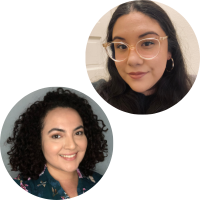
Andrea Carreño Cortez is a doctoral student in the Culturally Sustaining Education program at the University of Washington, where her work and research supports the creation of affinity spaces for current and future teachers of Color committed to anti-racism and social justice.
Fannie Martínez is a PhD Candidate in Educational Policy, Organizations, & Leadership at the University of Washington, and where her work centers Latiné student perceptions and experiences of wellness as a means to influence wellness policies, curriculum, and practices that are written and implemented in various formal and informal educational spaces.
Racial Disparities in School Discipline Data in Washington State
In this session we will pose questions, conduct an initial analysis and interpretations, and consider the limitations of a dataset containing out-of-school suspension (OSS) information about schools and districts in Washington State. We will observe racialized trends in OSS in the data set, discuss policies and systems that these disparities arise from, and consider how the data analysis can inform change efforts in schools and districts.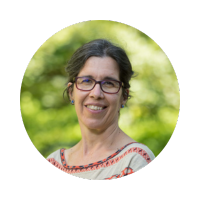
Ksenija Simic-Muller is a professor and mathematics teacher educator at Pacific Lutheran University in Washington State who seeks in her work to rehumanize mathematics for all students.
Center In Community Care: Explore maintenance, self-care, & community care in our co-created space
The never-ending pull of productivity and self-care is often blurred. In this space during the Center in Community Care Workshop, I support authenticity, and share brave space, exploring maintenance, self-care, community care, and how they are intertwined. Participants leave this co-created space with a personalized care contract.
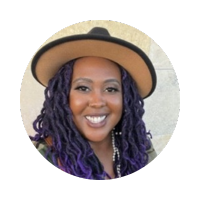
Author Bonita Lee has 22 years of experience in equity, inclusion, education, & family/community engagement helping center under-represented voices & support marginalized groups to pursue a healthy, fulfilling & productive life.
Building Diversity Hubs In Your School
Schools are more than just learning centers; they are social hubs where students engage with each other. By intentionally building these social hubs with an eye for diversity, we can help ensure that students from traditionally excluded communities feel invited, embraced, and celebrated.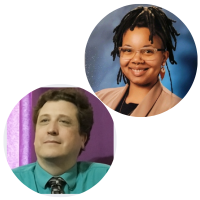
Netera Pratt-Gutierrez is a elementary librarian, Executive Board Member for Kent Education Association (KEA) and Kent Educators of Color Network (KECoN) member.
Gavin Downing is a school librarian who has made his library a hub of community and diversity at his high school. He has been in education for just under 20 years, and has been a school librarian for 10. In 2022, he received media coverage for preventing LGBTQ books from being banned from his school library. He is the 2022 recipient of the Candace Morgan Intellectual Freedom Award, and the 2023 recipient of the WLA Student Involvement Award, both for his work with diversity, equity, and inclusion.
Working With the Live Wire of Oppression
If you’re working to dismantle systems of oppression, you’re working with trauma. The more you know about trauma, the more effective your anti-oppression efforts will be. “Working With the Live Wire of Oppression” is a workshop for folks who are actively working to dismantle systems of oppression. It revolves around two essential questions: Why do systems of oppression exist, and how can we learn to work directly with the unprocessed trauma that animates them?
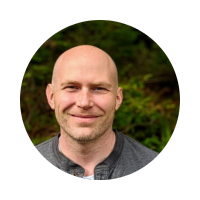
James Boutin is an educator, facilitator, and trainer for social change.
Voices of the Formerly Incarcerated: Identifying, Disrupting, and Dismantling the School-to-Prison Pipeline
This panel features three presenters who were formally incarcerated. They will discuss and address their own lived experiences with public education, an analysis of how anti-Black racism (and other oppressions) have destroyed the soul of learning, along with solutions to disrupt and dismantle the school to prison pipeline and to support youth in understanding how to self-advocate and question their own learning and schooling experiences.Saturday Afternoon Sessions | 1:45-3:15pm
Bringing Racial Equity to the Forefront: It’s Time to Walk the Walk!
This session is a comprehensive strategy to bring racial equity discussions into the classroom, small groups and families. Watch the acclaimed documentary about busing in the 1970s and 1980s at Roosevelt High school, followed by a film Q&A session. Participants will have access to a Teacher’s Guide for using the documentary in the classroom and a curriculum guide for use in the Middle Schools and High Schools.
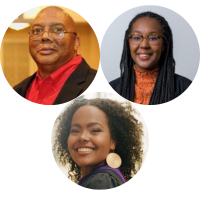
Joe Hunter is the Chairperson of RARE (Roosevelt Alumni for Racial Equity); he works towards meeting our mission to advocate for racial equity for students furthest from educational justice.
Jessamyn Reichmann is not only a RARE Board member, she is a sociologist with experience in working with the National Education Strategy team, and with student groups at Loyola University, New Orleans.
Leah Scott received the James Davis Scholarship Award sponsored by RARE and is featured in the documentary “RHS: Beyond Black and White. Leah is now a Senior at the University of Washington majoring in Political Science and Law, Societies, & Justice, pursuing a career in law after graduation.
Teach Under Fire: How to Battle Burn-out in Social Justice Education
Social justice teaching is under attack. The laws, book bans, and reversal of affirmative action attempt to barricade us from equitable classrooms. Yet, setbacks become set-ups for success when we persist. For the ’23–’24 school year, educators must supercharge their purpose. This workshop guides participants in crafting powerful vision statements, reigniting their passion for teaching. Desmond Spann shares how to align vision statements with classroom practices and how to prevent burnout with mindfulness.
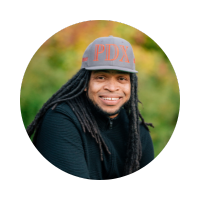
Desmond Spann is a creative, visionary thought leader who aids in the growth and healing of people, particularly black and brown youth, by teaching, speaking, and creating a brave space. He acknowledges the challenges of internalized racism but remains committed to fostering unity that respects differences. Spann has firsthand experience in education and equity advocacy, which shapes his perspective and expertise. He was awarded a fellowship in the Racial Justice Institute of Oregon in January 2022.
Cultivating a Culture of Care Through Embodied Tools and Practices
We gently invite our community to consider that somatic/body-based practices for emotional regulation and healing are essential for creating a culture of care. Together we will learn about trauma’s impact on the brain and nervous system, understand how systems of oppression impact our bodies, practice utilizing embodiment tools for self and co-regulation, experience movement as a tool for liberation.
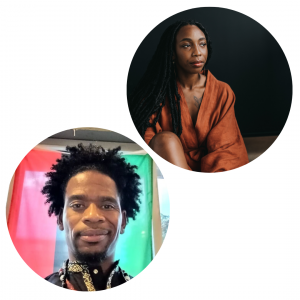
Faraji Bhakti is the Community Engagement Specialist/Youth Lead at YBB. He practices embodied trauma-informed yoga and sound bowl guided meditation journey.
Gabrielle Oglesby (she/they) is one of YBB’s Co-Executive Directors. She is a Black, non-binary, queer and disabled survivor committed to our collective liberation. She believes that centering wellness is an act of resistance and is a way for us to all get free.
Building Sustainability in Advocacy for Equity Work
Come create a message for an issue you are passionate about. We support educators and leaders in defining their audience, what thresholds to consider, and what data or anecdotes to include. We will also address how positionality and identity play a role in advocacy and equity messages or movements. Participants will leave the session having a better awareness of what it means to work alongside as a co-conspirator instead of falling into white saviorism norms and behaviors in advancing advocacy for equity.
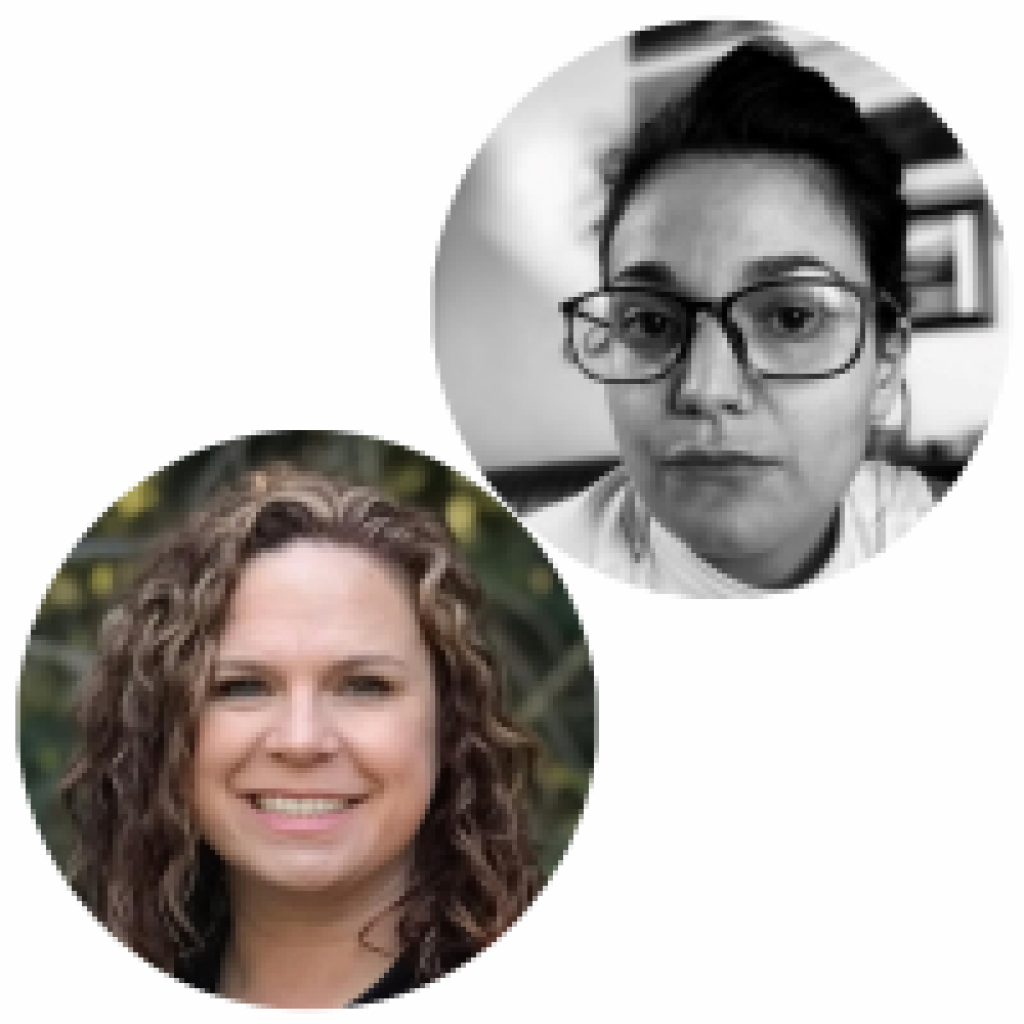
Saara Kamal (she/hers) is an antiracist educator whose pursuit of liberation stems from her own lived experiences as a multiracial woman of color who grew up in and navigated predominantly white spaces and the harms of racism, sexism, and classism. As a facilitator, she has deep experience working with BIPOC educators, BIPOC leaders, and white leaders as they unpack the ways their racialized and intersecting identities and has a particular skill in creating spaces that center BIPOC voices, needs, and experiences through a lens of healing from racial trauma.
Lindsey Stevens is the Executive Director at the Center for Strengthening the Teaching Profession (CSTP). She is a National Board Certified Teacher who lives in Tacoma and started with CSTP in August 2017 as the Supporting Effective Educator Development (SEED) Grant Washington State Site Director and before stepping in as Executive Director she served as the Director of Teacher Leadership and Learning. Previously she was a high school social studies and English language arts teacher for 15 years as well as a full-time release mentor teacher in the Sumner School District supporting new to career teachers at the secondary level. Her passion for all things teacher leadership and effective instruction has led her happily to this work.
Knowing Better and Doing Better: How Leading for Liberation is Transforming a State Education Agency
The Professional Education Standards Board is the state education agency (SEA) responsible for approving and regulating educator preparation programs, developing educator standards and certification policy, setting guidelines for paraeducator employment and professional learning, and strengthening and diversifying the educator workforce. In this panel discussion, the agency staff will share examples of how leading for liberation, including adopting communal and community-based practices, has transformed the agency and its work. As such, this panel presentation will be helpful to any educator, educational leader, administrator, or policymaker interested in dismantling the culture of white supremacy in the workplace and establishing a robust learning culture.
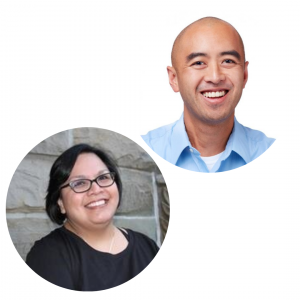
Dr. Erica Hernandez-Scott has been an educator for 20+ years and currently serves as the Executive Director of Washington State’s Professional Educator Standards Board.
Michael Nguyen is a Program Manager for Educator Credentialing at the Washington State Professional Educator Standards Board.
How do we remain who we are in these school hallways? Black, Indigenous, and Teachers of Color sustaining identities
In this session, A Longoria will lead a dialogue about identity-sustaining pedagogy for K-12 BIPOC teachers. They will discuss their book (co-written with Francisco Rios) Creating a home in schools: Sustaining identities for Black, Indigenous, and teachers of color.
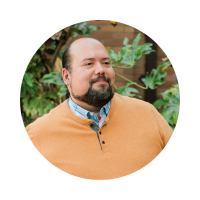
Empowering Educators: Fostering Critical Reflection and Collaborative Advocacy as Crucial Endeavors
This session emphasizes the educators’ advocacy role in promoting inclusion and acceptance to inspire future generations of teachers. Attendees will engage in discussion and reflection about real scenarios, including collaborative problem-solving around conflicting views on program models that promote language acquisition for different student populations. The objective is to foster an inquiry-oriented approach to language acquisition, immigrant rights, cultural and linguistic identity, as well as explore how teachers’ language ideologies impact their advocacy style.
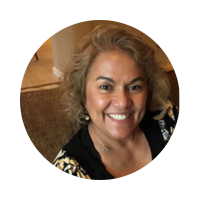
Patricia Ferreyra is a teacher educator at the University of Washington. She currently teaches graduate-level courses in the College of Education, and coordinates the ELL, Bilingual and Reading Endorsements. Her scholarly research centers on the language ideologies of Latinx Spanish-English Dual Language Teacher Candidates. Through her work, she investigates whether and how the candidates’ language ideologies shift over time, and whether these ideologies align with the goals of Dual Language Bilingual Education to create more equitable conditions for linguistically minoritized students.
María Esther Zamora is a proud Mexican American mother of two amazing bicultural-bilingual professionals–one as a neuroscientist, currently pursuing School Counseling credentials, and the other as an industrial psychologist. Professionally, she has a unique combination of 27 years of experience in teaching K-12 and Higher Ed environments in Washington State, plus a decade of experience in the financial banking sector in Mexico. An advocate for immigrants and refugee students and families, she serves as a liaison, building partnerships that promote antiracist practices. She is the leader and founder of the Spokane Future Educators of Color Consortium, an organization that strategically fosters diversity in the educators’ workforce in her community through the creation of an inner pipeline of educators and the promotion of their retention as valuable community members.
Saturday Artist
Thank you to our wonderful Saturday Performer!
Azul Walker | Spoken Word Poet
Azul (they/them) creates portals and knows expression is freedom.
